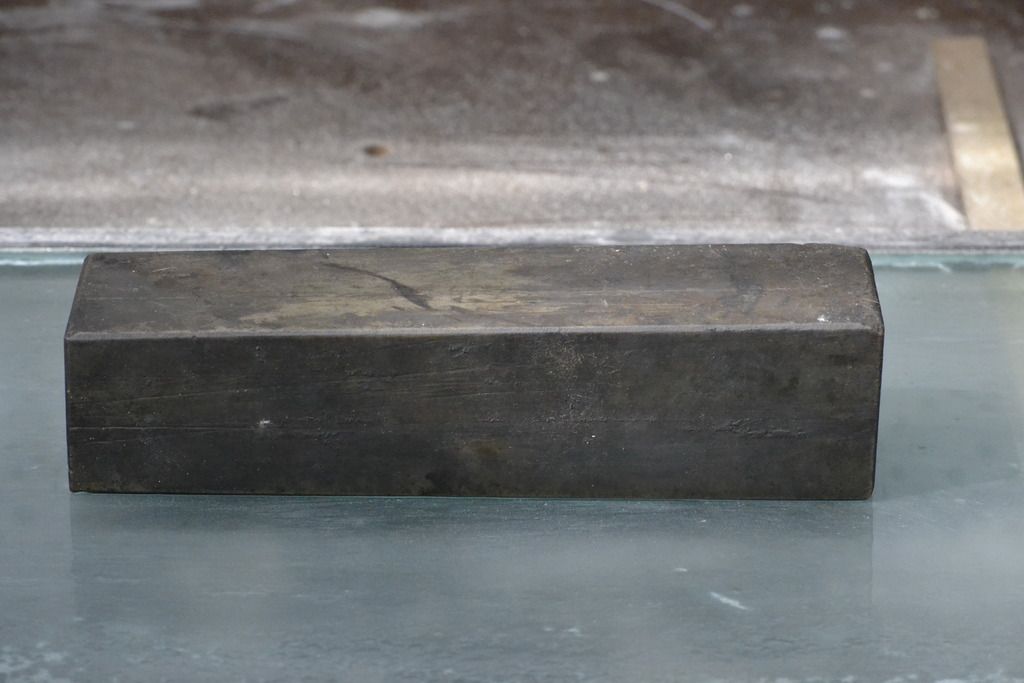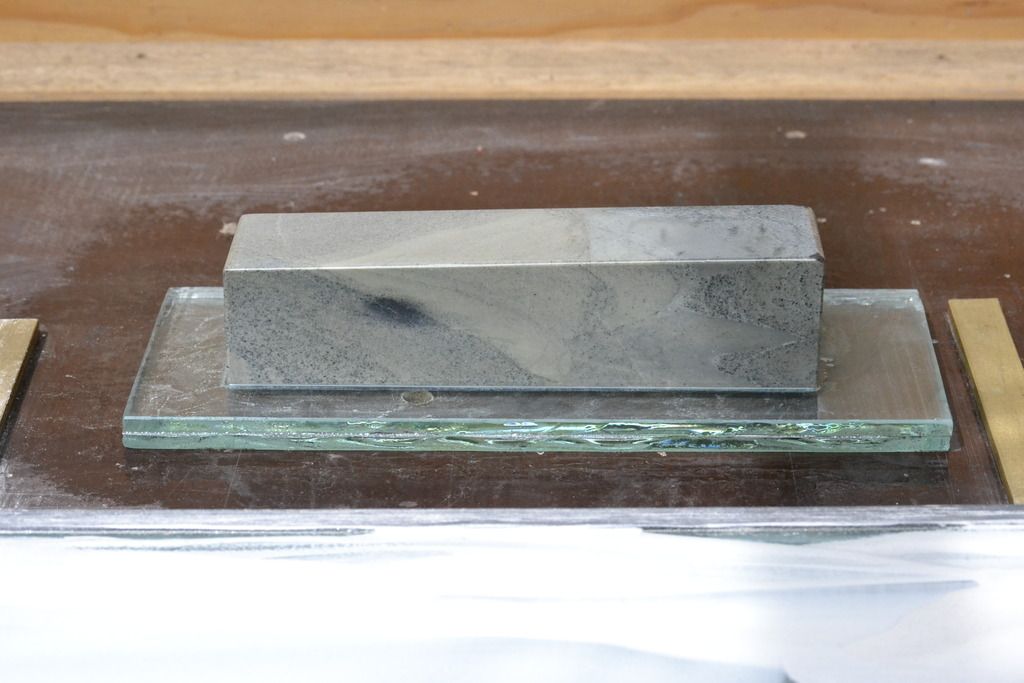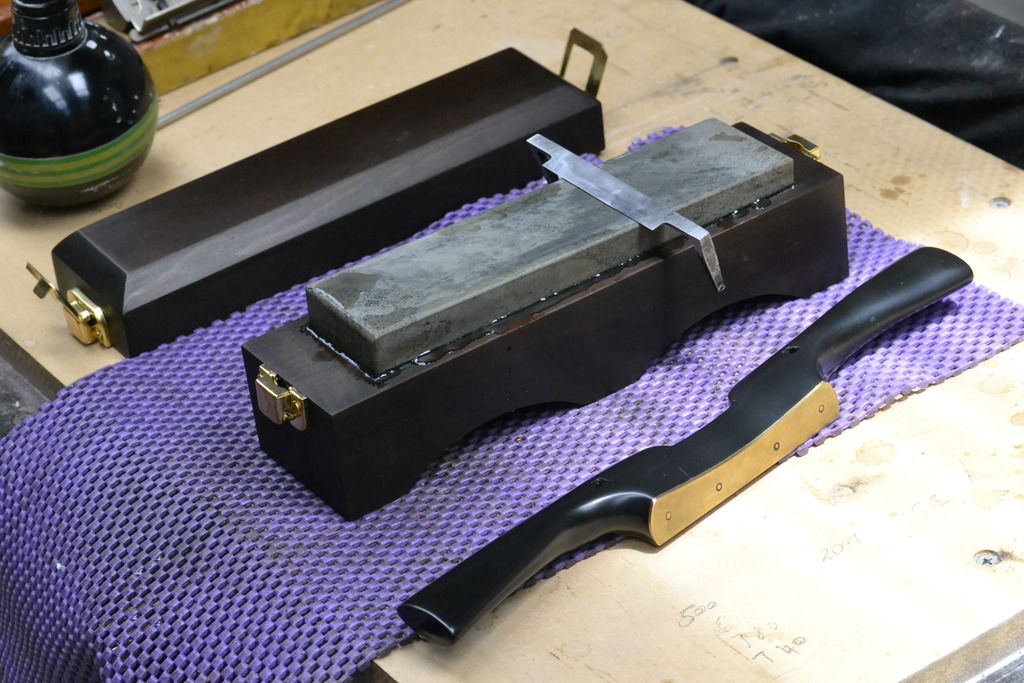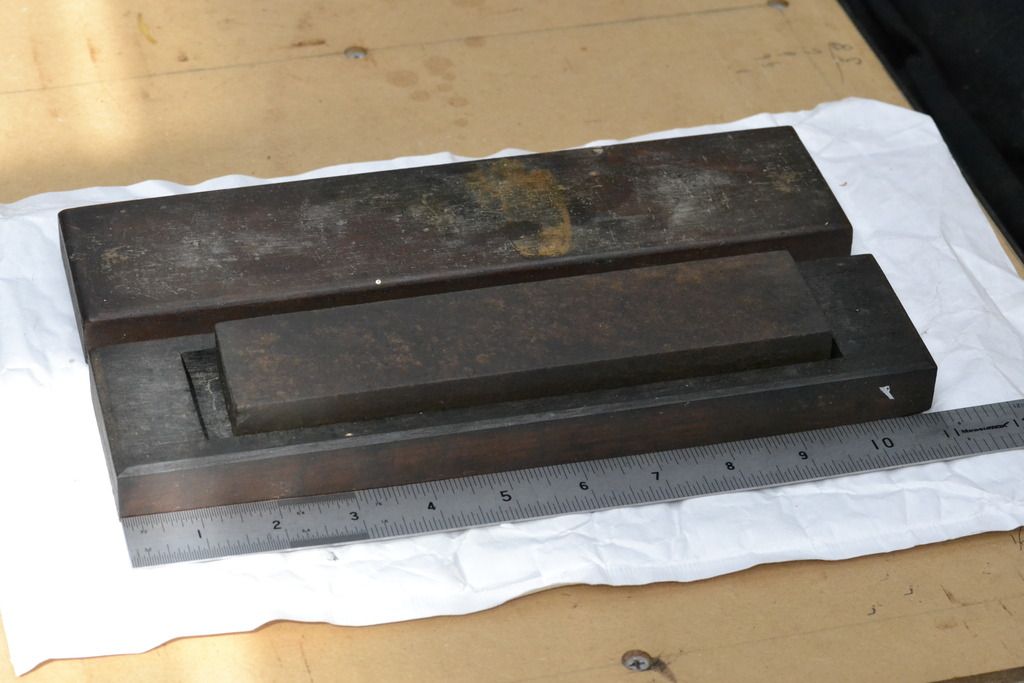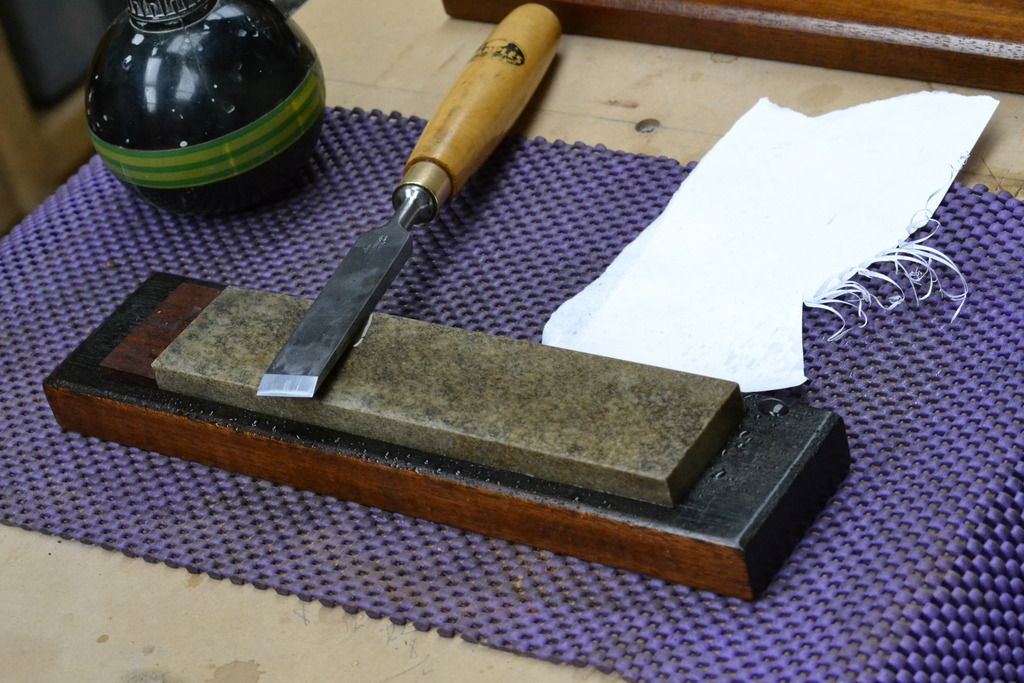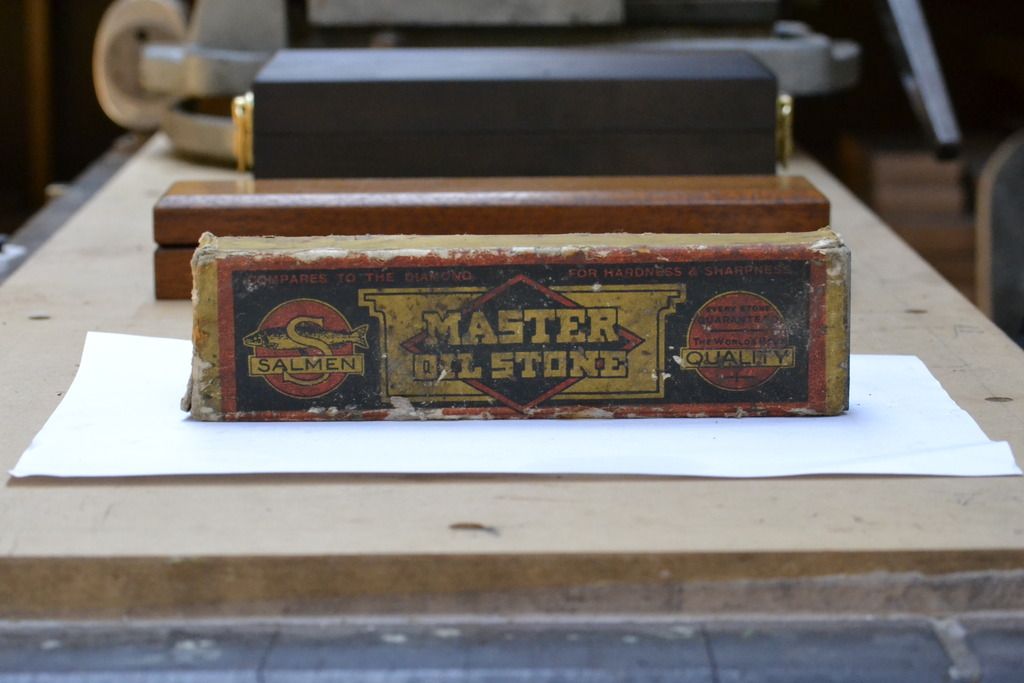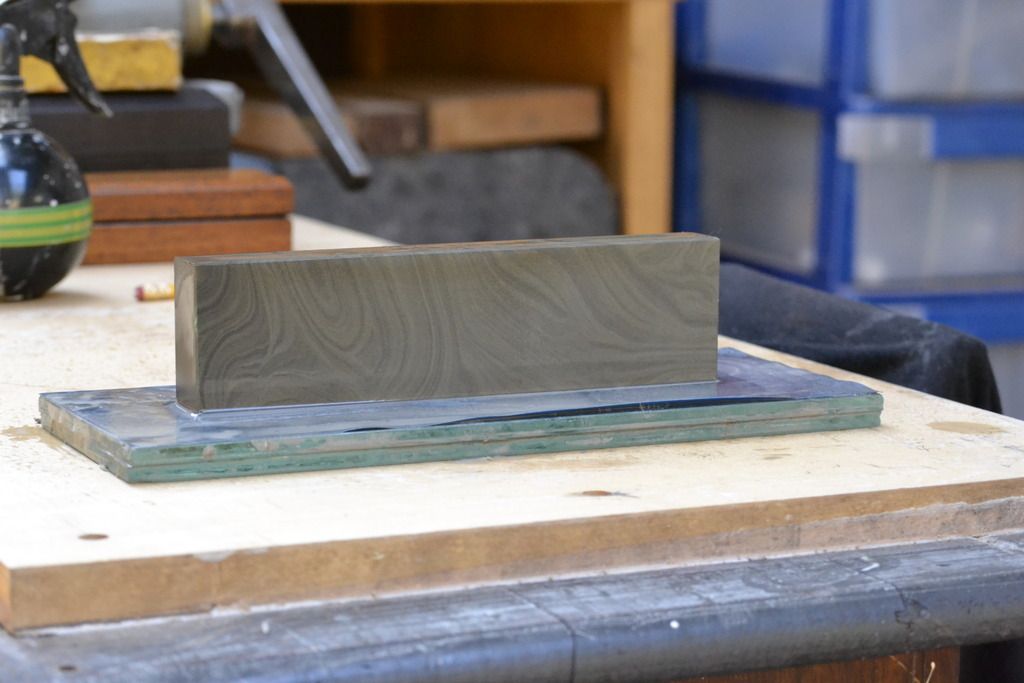bugbear":2u8v4w9z said:
swagman":2u8v4w9z said:
I have heard arguments on the Razor Forum suggesting that Washita and Ark stones are OIL STONES. That in my opinion is a misleading statement. There are very few natural stones that you could categorise as a true Oil stone.
There may be a jargon/communication problem. To avoid it: what is your definition of "oil stone" (and/or "true oil stone") ?
BugBear
What a wonderful question BB; since I starting purchasing different types of 2nd hand natural stones from the uk, I found it astonishing that nearly all of these stones have been used long term with oil. Why in the u.k. What was the impetus to not use water. Was it based on concerns with rust, the cooler weather, or long held tradition. I honestly have no idea.
Take for example the condition I received the following Welsh Idwall Grecian Hone. Caked in years of oil use, inhibiting its capacity to function effectively. And why would you choose to use oil in the 1st place with this type of stone.
And here is the same stone after being cleaned up.
And here is the same stone being used today to hone a spokeshave blade. Its now a water only stone. A quick wipe down with a rag, and the stone surface is ready for use next time its needed.
And look at the condition of the Ark stone when I received it. Covered in years of oil use. No wonder is was a terribly slow cutter..
The same Ark after being leeched of old oil and now dedicated to water only.
And the packaging on this Salmen U.K stone. It states USE WITH FINE OIL.
Why would you use oil on a quality Scotch Dalmore Blue.
Stewie;




